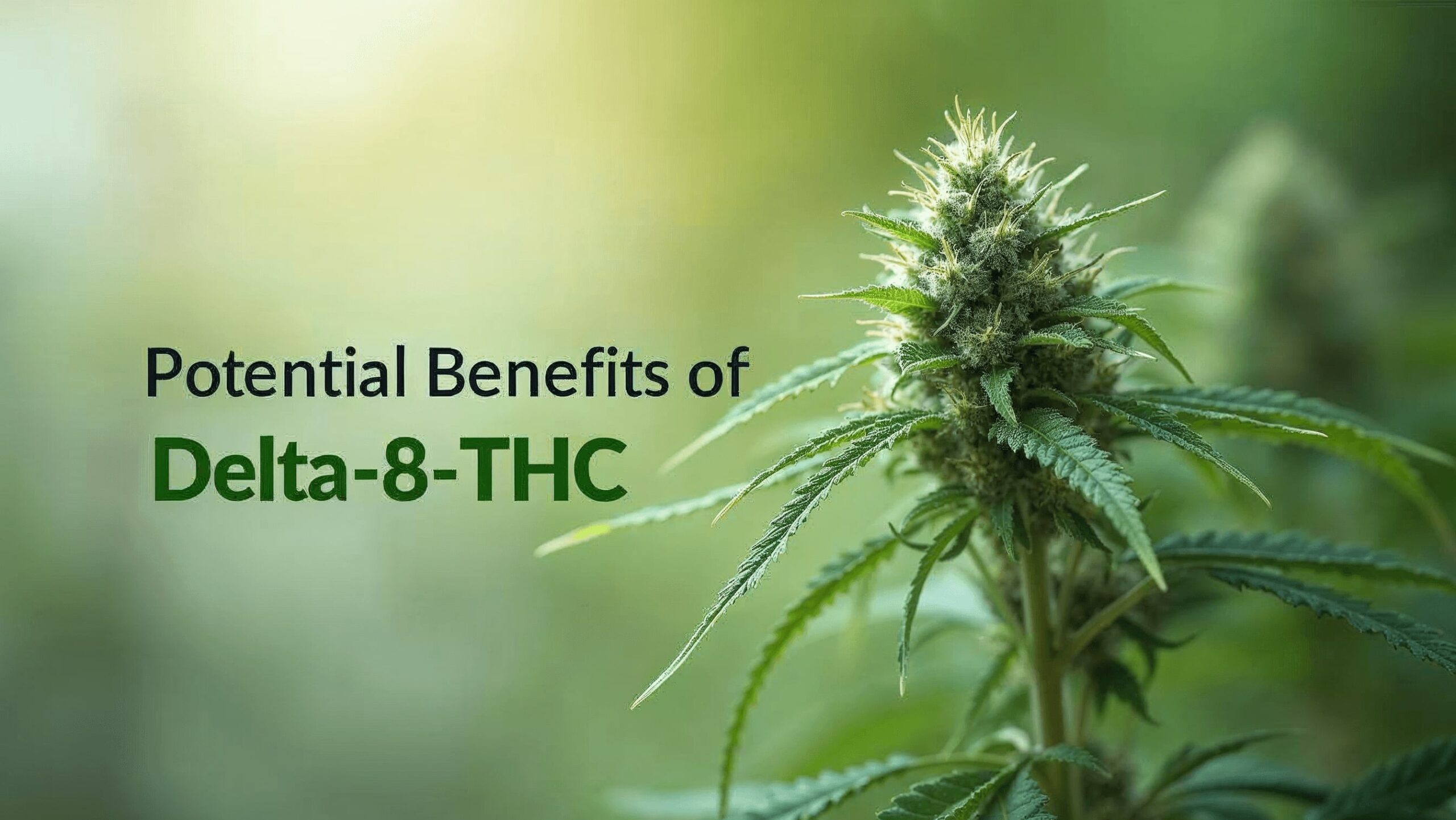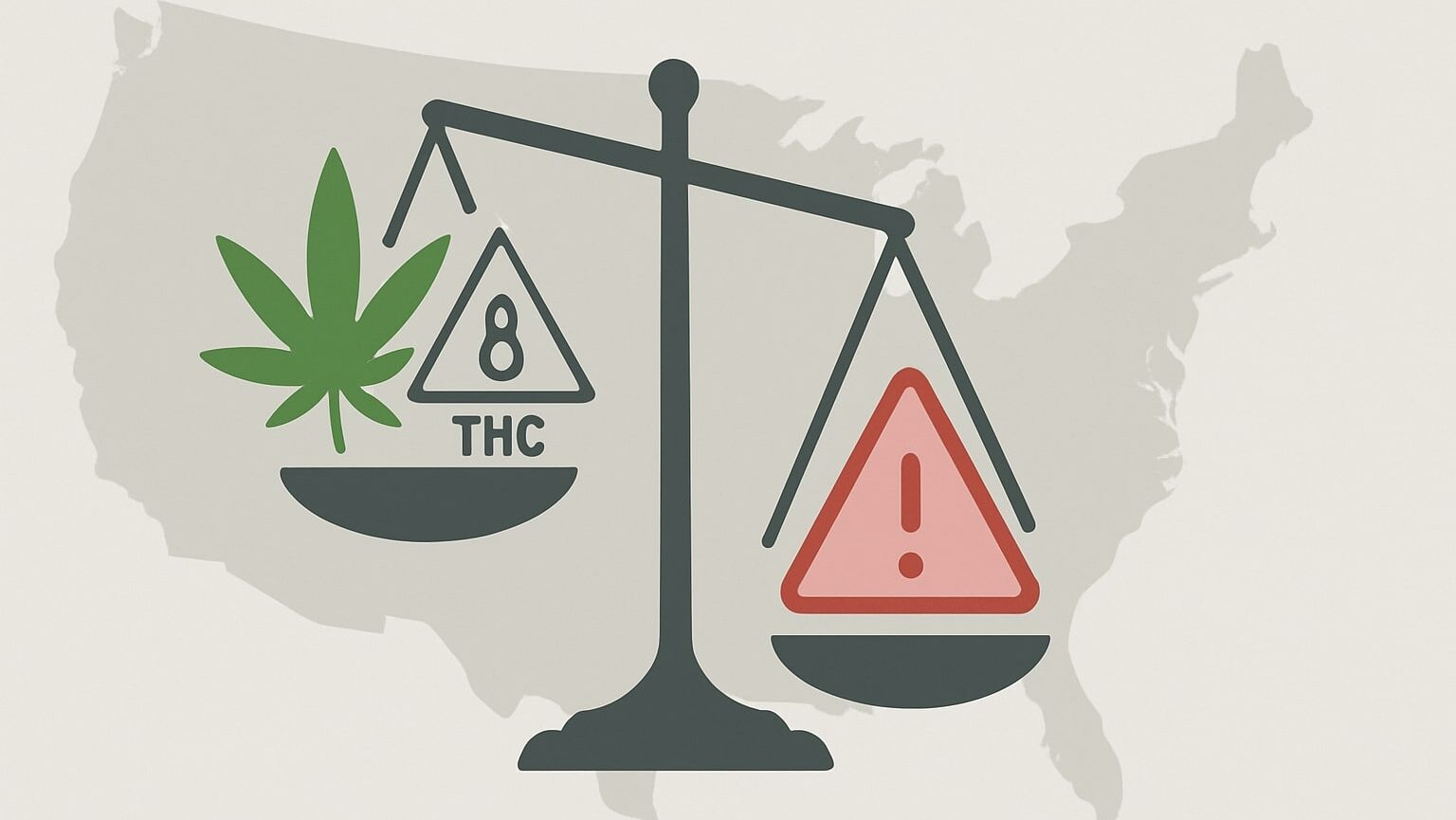
Delta 8 tetrahydrocannabinol, more commonly known as Delta 8 THC, has recently become one of the most talked-about cannabinoids on the market. It’s being sold as a milder, legal alternative to marijuana, and it’s showing up everywhere, from vape shops to gas stations to online storefronts. But what exactly is Delta 8? Is it safe? Is it legal? And how does it compare to other THC compounds?
After carefully reviewing top sources, including the FDA, Cleveland Clinic, WebMD, Healthline, PubChem, and more, this article brings you a complete guide to Delta 8 THC: what it is, how it works, potential benefits, health risks, legality, and more.
What Is Delta 8 THC?
Delta 8 THC is a naturally occurring chemical compound (called a cannabinoid) found in the cannabis plant. It’s structurally similar to Delta 9 THC, the well-known compound responsible for the “high” from marijuana but it’s less potent.
In its natural form, Delta 8 is only found in very small amounts in cannabis. To meet growing demand, most Delta 8 on the market is synthetically produced by converting CBD (which is extracted from legal hemp) into Delta 8 through a chemical process.
Key Points:
- Delta 8 is psychoactive, but milder than Delta 9 THC.
- It’s usually made from hemp-derived CBD through chemical synthesis.
- Unlike CBD, Delta 8 can cause intoxication.
How Does Delta-8 Compare to Delta-9 and Delta-10 THC?
There are several types of THC, and while their names sound similar, their effects can differ quite a bit:
| Compound | Description | Potency | Legal Clarity | Common Effects |
|---|---|---|---|---|
| Delta-9 THC | The most well-known THC, found in marijuana | High | Heavily regulated | Strong high, euphoria, anxiety |
| Delta-8 THC | A less potent version, often from hemp | Mild | Legally murky in many states | Relaxed high, clearer mind |
| Delta-10 THC | A newer, rarer variant | Unknown | Unclear | Anecdotally uplifting and energizing |
Delta 8 binds to the same receptors in the brain as Delta 9 but with less intensity, which can lead to a gentler high and fewer reports of anxiety or paranoia.

Potential Benefits of Delta-8 THC
Though research is still limited, some consumers and early studies suggest Delta 8 may have several potential therapeutic effects. Users have reported relief from:
- Anxiety and stress
- Chronic pain and inflammation
- Trouble sleeping
- Nausea and vomiting
- Low appetite
According to anecdotal data and preliminary research, Delta 8 may offer some of the medicinal benefits of cannabis with fewer psychoactive side effects. However, clinical evidence is still lacking, and more studies are needed to confirm these claims.
Risks and Side Effects: What You Should Know
Because Delta 8 products are largely unregulated, safety is a major concern. According to the U.S. Food and Drug Administration (FDA), Delta 8 has been linked to:
- Hallucinations
- Vomiting
- Anxiety
- Confusion
- Loss of consciousness
From December 2020 through February 2022, the FDA received more than 100 reports of adverse effects related to Delta 8 use. Some cases required emergency medical care.
Another concern: Many Delta 8 products contain unknown substances. Since they’re synthesized in labs with varying levels of oversight, some may contain harmful chemicals, residual solvents, or high levels of Delta-9 THC.
How Is Delta 8 Consumed?
Delta 8 THC is available in a wide range of forms, often mimicking popular marijuana products:
- Gummies and edibles
- Vape cartridges and disposable pens
- Tinctures (liquid drops)
- Capsules and pills
- Hemp flower sprayed with Delta 8 extract
These products are widely available online and in retail stores but remember, just because it’s easy to buy doesn’t mean it’s safe.

Is Delta-8 THC Legal?
Here’s where things get complicated.
Under the 2018 U.S. Farm Bill, hemp-derived cannabinoids like CBD became legal, so long as they contain less than 0.3% Delta-9 THC. Delta 8 slipped into the market under this legal gray area.
However, multiple states have since taken action to ban or regulate Delta 8 products due to safety concerns. As of now:
- 18+ U.S. states have banned or restricted Delta 8.
- The DEA has hinted that synthetically derived Delta 8 could be considered a controlled substance.
- The FDA and FTC have issued warnings to companies selling Delta 8 products in packaging that appeals to children (like candy or cereal lookalikes), leading to accidental ingestion.
Check your local laws before purchasing or using Delta 8, as legality can vary significantly between jurisdictions.
What Experts and Regulators Are Saying
The FDA has taken a clear stance: Delta 8 products are often marketed in ways that put public health at risk. They’ve warned that:
- Manufacturing is unregulated.
- Products may be mislabeled or contaminated.
- There is no reliable dosing information.
Health professionals, including those from the Cleveland Clinic, echo these concerns. They emphasize that without proper regulation, consumers are essentially guinea pigs for these new and untested substances.
Final Thoughts: Should You Try Delta-8 THC?
Delta 8 may offer a milder cannabis experience and potential relief from certain symptoms, but it’s not without risks. With inconsistent manufacturing practices, lack of testing, and evolving legal status, it’s important to proceed with caution.
If you’re considering Delta-8:
- Buy from reputable brands that offer lab test results.
- Start with a low dose to gauge your body’s response.
- Never use Delta 8 products around children or pets.
- Speak with your doctor, especially if you have a medical condition or take other medications.
FAQ’s
1. Will Delta-8 THC show up on a drug test?
Yes. Even though Delta-8 is different from Delta-9 THC, most drug tests can’t distinguish between the two. Using Delta-8 may cause a positive result on a standard drug screening for THC.
2. How long does Delta-8 stay in your system?
Delta-8 can stay in your system for several days to weeks, depending on factors like dosage, frequency of use, metabolism, and body fat. Chronic users may retain traces for longer periods.
3. Is Delta-8 safe for beginners?
While many users report milder effects compared to Delta-9, Delta-8 is still psychoactive and can cause side effects like dizziness or anxiety. Beginners should start with a very low dose and consult a healthcare provider if unsure.
4. Can you drive after using Delta-8?
No. Because Delta-8 is intoxicating and can impair judgment and reaction time, it is unsafe and likely illegal to drive while under its influence, even if it’s legal in your state.
5. Is Delta-8 safe for pets?
Absolutely not. Delta-8 and other cannabinoids can be toxic to pets. If your pet ingests Delta-8, seek veterinary care immediately.
6. Can I travel with Delta-8 THC?
Traveling with Delta-8 is risky. Even if it’s legal in your departure state, it may be illegal in your destination. Carrying it across state lines could lead to legal trouble, especially in Delta-8-restricted states.
7. Does Delta-8 cause a “high”?
Yes, but it’s generally described as less intense and more clear-headed than the high from Delta-9 THC. Effects vary by individual and product type.
8. What does “hemp-derived Delta-8” mean?
This means the Delta-8 was chemically synthesized from CBD extracted from hemp (which is federally legal) instead of coming directly from marijuana.
9. Are Delta-8 products tested for safety?
Not consistently. Many Delta-8 products are not regulated or tested by third-party labs. Always look for products with clear lab results (Certificates of Analysis) to ensure quality and safety.
10. Can Delta-8 THC interact with medications?
Yes. Like other cannabinoids, Delta-8 may interact with prescription medications, especially those processed by the liver. Always speak with your doctor before using Delta-8 if you’re on medication.
Sources:
- FDA: 5 Things to Know About Delta-8 THC
- Healthline: Delta-8 vs Delta-9 vs Delta-10
- WebMD: What Is Delta-8 THC?
- Cleveland Clinic: What You Need to Know About Delta-8
- NYT: Delta-8 THC Products Rise in Popularity
- PubChem: Chemical Profile for Delta-8
